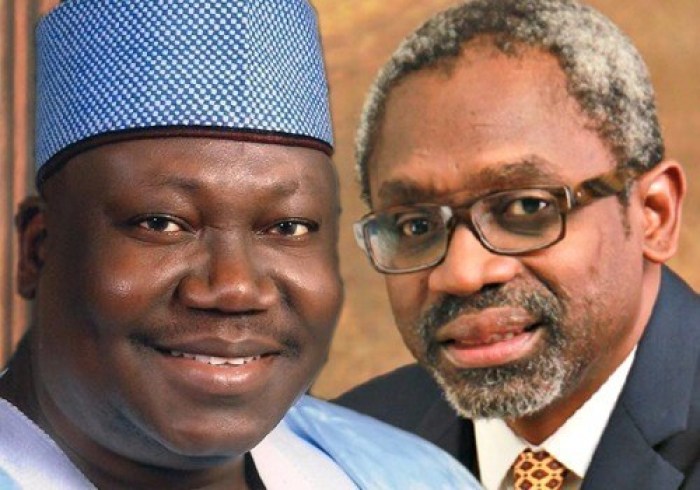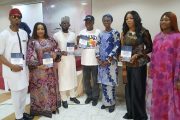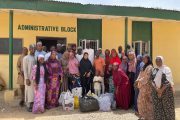Below are excerpts from a memo Abuja based Civil Society Legislative Advocacy Centre, (CISLAC) has pushed to the National Assembly offering suggestions on how it might take Nigeria more seriously towards the possibility of re-inventing it. Auwal Musa Ibrahim, Executive Director of CISLAC signed the document for the organisation.
By CISLAC
Background
Nigeria’s National Assembly is a critical part of the tripod upon which our democracy stands. Together with the Executive and judicial arms, it signposts true democracy with separation of power, checks and balances and collective responsibility for good governance. Today, Nigeria is facing perhaps the worst challenge of making governance work for all Nigerians.
For far too long, governance has been reduced to personal enrichment and distribution of state resources to build private estates and service cronies. The result is the widespread poverty, illiteracy, dilapidated infrastructures, large number of out of school children, derelict health care facilities worse than 1970 standards with consequent avoidable and needless deaths.

Only the judiciary is missing from this picture. Otherwise, these are the heads of the Executive and the Legislature
Nigeria is today fast becoming unliveable and difficult place on earth for the majority. It is driving our young ones and critical labour needs for development out of the country in droves. Those who manage to stay back face the horrors of neglect and near complete absence of governance. Many are daily hoarded below poverty in their thousands and millions. Many eventually become the cannon fodder in the hands of thriving evil entrepreneurs scattered across the length and breadth of the nation.
That Nigeria is in a dire state is never in doubt. Even President Buhari acknowledged this. However, the responsibility to transform Nigeria cannot be left to one arm or leg in the tripod. Nigeria, and the effort to revive it is likely to fail unless the tripod – Executive, Legislature and Judiciary, come to the common understanding about the urgent need to work together and find the temperament for doing so sustainably. If not for the benefits of today, then for the coming generation, the Executive, Legislature and the Judiciary must immediately evolve a common vision for Nigeria, and join hands together to realize it. Nigerians are hungry. Too many are jobless and near-hopeless. Too many women die while trying to give birth. Far more Nigerians die for treatable diseases; even for something as simple as a headache. Nigeria is unsafe for the majority- kidnapping, ritual killings, terrorism, banditry, armed robbery have become the order of the day. Nigerians are forced to pay for darkness. Our roads are unpassable. They are death traps and continue to take our bests and most promising heads in avoidable road accidents. Governance in our country seems totally bereft of empathy for the governed. The result is the dearth of public trust for government and everything that stands for or represent government across board.
The role of the National Assembly is clearly defined in the Nigeria constitution; making laws for the well-being and development of the people and our democracy, oversighting the Executive arm, among other things. The biggest threat to these roles is first “the attitude of the lawmakers”; followed by the general apathy and distrust for this important arm of government. Without immediately rethinking the culture and temperament of law-making and its contributions to the living conditions of the Nigerian people, the federal parliament stand the risk of remaining the weakest link in the critical tripod of our democracy. Nigerians will continue to despise the National Assembly. Therefore, the 9th Assembly must put as its primary target for the next foreseeable years, the primacy of recovering and restoring popular confidence in the National Assembly as its most important and overarching priority and urgently find creative ways of making this a cross-cutting target throughout law making responsibilities, oversight and every other duty. Those responsible for making this happen are first the leadership, the office of the Senate President, and the Office of the Speaker of the House of Representatives; followed by all Committee chairwoman and chairmen and all office holders; elective and appointive.
Basis for prioritization and agenda setting
In our considered opinion, the following key considerations must define the priorities of the 9th Assembly:
1. The constitutional role of the National Assembly;
2. Immediate and pressing development challenges facing Nigeria’s democracy and the people;
3. Long term development needs and vision for Nigeria;
4. Need for congruence of direction among the three arms of government;
5. The urgent need to reverse the low public confidence and trust deficit facing government across board, including the national Assembly;
Law making and ensuring compliance: everywhere, the days are gone when legislations are made for their sake. The essence of law-making is to improve society and people. This is impossible when laws are made and not complied with. Nigeria has too many laws that are vagrantly ignored, sidestepped and violated for political and selfish interests while the NASS looks on. The 9th Assembly must prioritize the need to make laws for the wellbeing of Nigeria and all Nigerians. Fundamentally however, it must prioritize oversight to ensure compliance with its laws. Listed below are critical legislations that we suggest receive the priority attention of the 9th Assembly.
 Legislations for the wellbeing of Nigerians: the 9th NASS must focus its attention on the implementation and compliance with the following major legislations which are capable of solving major developmental challenges facing Nigeria and Nigerians; The National Health Act, Violence Against Persons Act, Administration of Criminal Justice Act, and relevant Acts in the water, housing, agriculture, and education sectors, among others. For too long, our annual budgets are poorly implemented with very little evidence of impact on the living conditions and critical development index. The poor budget implementation has been blamed for the worsening inequality and widespread poverty. Annual appropriations must be seen to make and record actual impact in the lives of Nigerians. The National Assembly must rethink its oversight and put well-being and concrete development index at the centre of its oversight functions.
Legislations for the wellbeing of Nigerians: the 9th NASS must focus its attention on the implementation and compliance with the following major legislations which are capable of solving major developmental challenges facing Nigeria and Nigerians; The National Health Act, Violence Against Persons Act, Administration of Criminal Justice Act, and relevant Acts in the water, housing, agriculture, and education sectors, among others. For too long, our annual budgets are poorly implemented with very little evidence of impact on the living conditions and critical development index. The poor budget implementation has been blamed for the worsening inequality and widespread poverty. Annual appropriations must be seen to make and record actual impact in the lives of Nigerians. The National Assembly must rethink its oversight and put well-being and concrete development index at the centre of its oversight functions.
Promotion of good governance: the greatest power of a democracy is the emphasis on rule-base. This is what makes the legislature crucial. Consequently, it is our recommendation to the NASS to prioritise legislations and policies capable of deepening rule of law, transparency and accountability and the rights of Nigerians throughout the foreseeable future. The last 19 years, Nigeria made significant progress putting in place accountability laws and critical legislative infrastructures for the advancement and promotion of an egalitarian society. These laws have however failed to yield their full potentials. It is our recommendation to the NASS to immediately begin to prioritise compliance with existing transparency and accountability legislations for the public and private sectors. Relatedly, international instruments and continental commitments of the country must be adhered with. In our opinion, the NASS must puts its full weight behind efforts to ensure compliance with the Public procurement Act, Freedom of Information Act, Fiscal Responsibility Act, Nigeria Extractive Industries Transparency Act, and all other relevant legislations capable of promoting good governance in the oil, gas and mining sectors and improve the management of the Nigeria economy. The 9th Assembly must learn to work collaboratively with trusted civil society organisations to cascade the accountability campaign downwards; beyond the Presidency and appointed political office holders. Senior civil servants such as Permanent Secretaries, Directors and others with approving authorities and influence in public expenditure budgeting and spending must be held accountable. For too long, these categories have hidden away from sunshine; often finding cover behind political appointees. It is time to change this practice and let everyone that manage public funds, at all level become accountable.
Screening of political appointees: the first oversight responsibility for the 9th assembly will likely start with the consideration of public appointees of the president. Given the torrent of challenges facing the nation, only the ‘best eleven’ is good enough for this administration. The 9th National Assembly must rethink the way it considers and screens political appointees to involve the Nigerian voices. It is more than 30 days since the swearing in of the new administration. It is our recommendation that the NASS is thorough in its screening process and position itself as a “critical friend” to the Executive arm. You owe Nigerian masses a responsibility to ensure the Executive appoints people with the experience, commitment and energy to confront the many challenges facing our country. You must learn to put politics aside and stand on the side of the people as a check against the massive “politicization” that is threatening our collective wellbeing and corporate future.
The 9th Senate may make security a very important area of intervention if the country must remain united, vibrate and devoid of ethno-religious breakdown of law and order. Important Bills such as the Police Reform Bill may be given due diligence and accelerated passage by the Senate.




























